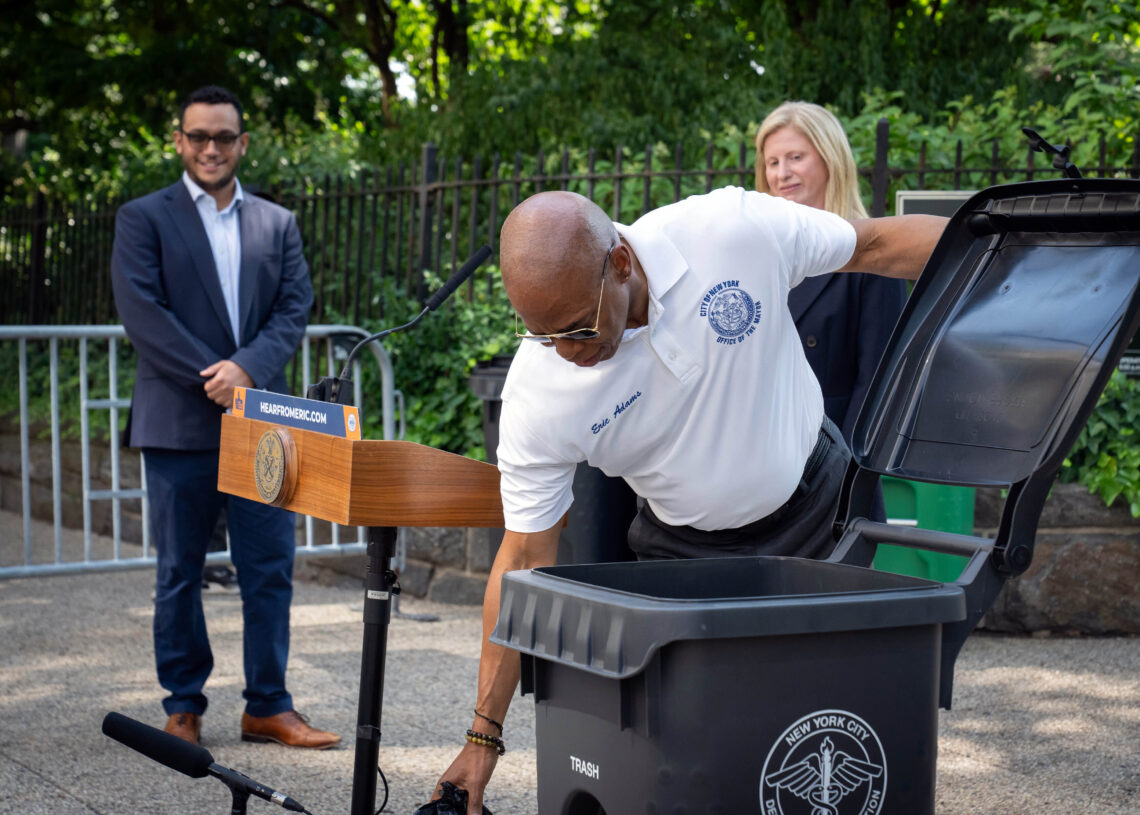New York is entering a new era for waste management. The metropolis has launched a full-scale revolution to handle the massive amount of trash produced daily.
Starting today, residents will be required to properly separate organic waste from regular household garbage, in order to avoid fines ranging from $25 to $300, depending on the size of the building they live in and the severity of the violation.
This move marks the decisive step of a project aimed at reducing landfill waste and increasing the collection and recycling of compostable materials, an effort that could transform the way the city addresses its environmental impact.
According to the new rules, organic waste, which includes food scraps, food-soiled paper, coffee grounds, eggshells, and garden material, must be carefully separated from traditional waste. Compostable materials should be placed in a covered bin, strictly labeled with the official city sticker, and left on the sidewalk the same day as the collection of recyclable materials.
The rules are clear and must be followed closely. Any violation will be penalized with hefty fines. For buildings with eight or fewer apartments, the first violation costs $25, but can rise to $100 for the third and subsequent violations. In buildings with nine or more apartments, the initial fine is $100, with a progressive increase that can reach up to $300 for repeat offenders.
Not all items can be composted, of course. Items such as diapers, pet litter, black plastic, and personal hygiene products are excluded from the new regulation, which focuses on easily biodegradable materials. Additionally, paper not contaminated by food, such as newspaper or pizza boxes without residue, must be recycled as traditional material.
This initiative represents a significant shift for New York, a city rapidly embracing a new sustainability culture. While the fines may seem like an excessive deterrent, the introduction of mandatory composting presents a growth opportunity for the community.
In recent years, there has been a real “leap forward” in tackling this issue, with an increasing focus on recycling and sustainability. While composting is not entirely new, its mandatory extension to all five boroughs marks a significant turning point. The Big Apple doesn’t want to remain just an economic and cultural innovation hub, but is preparing to become a model for waste management as well.
What once seemed like a complex challenge effectively disposing of millions of tons of trash is slowly transforming into a historic opportunity. The “city that never sleeps” is shifting toward more responsible and less polluting choices.












